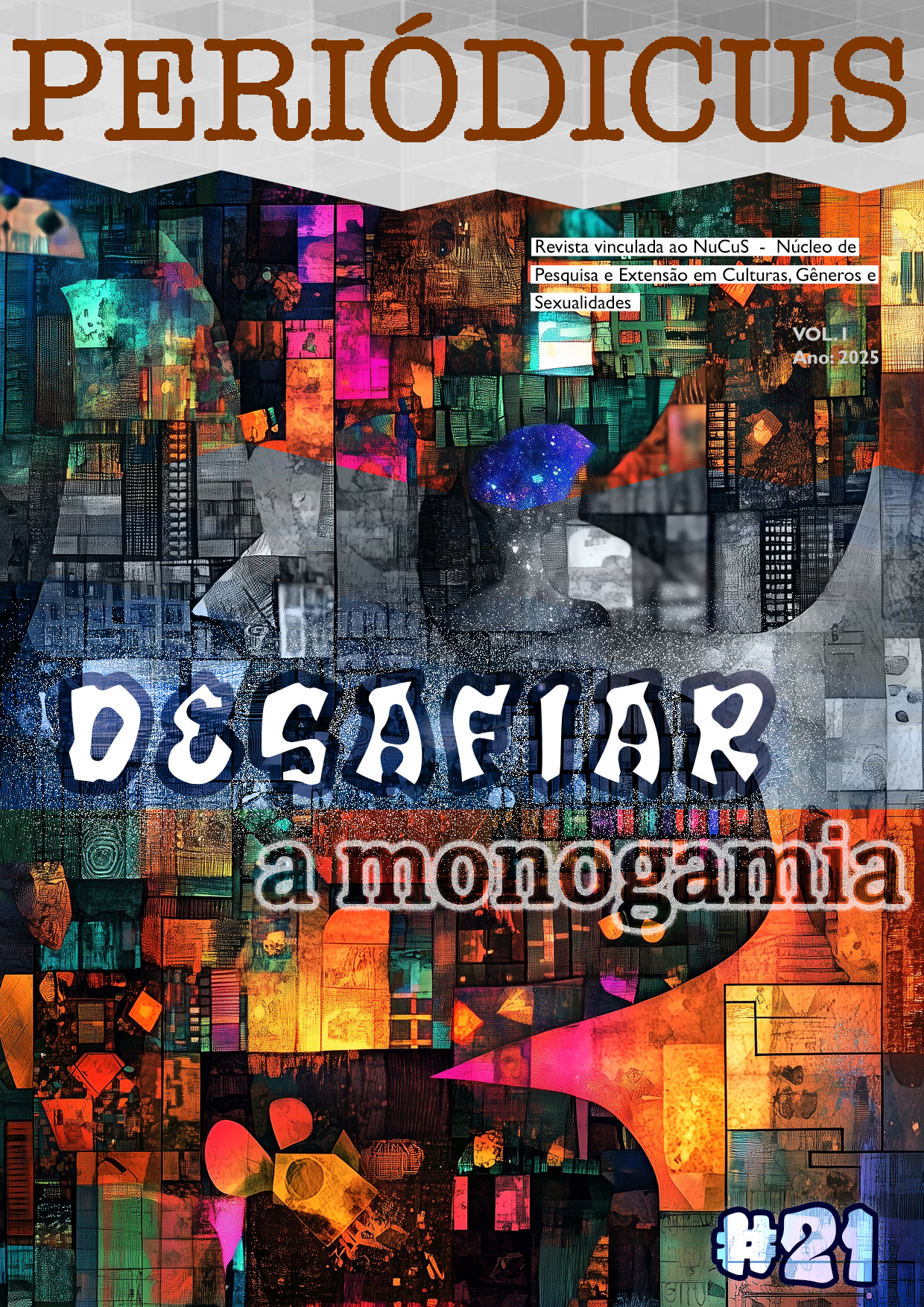O que há de queer na não monogamia atualmente?
DOI:
https://doi.org/10.9771/peri.v1i21.66041Resumo
O texto aqui traduzido faz parte do primeiro livro académico editado em inglês sobre não monogamias consensuais, e que marcou um ponto de viragem no prestígio e na visibilidade da produção académica sobre esse tema. Desde essa altura que os debates em torno da questão do potencial subversivo – ou não – das não monogamias consensuais se intensificou, especialmente no rescaldo da aprovação do casamento por pessoas do mesmo género em vários países. Em certos sentidos, o texto de Eleanor Wilkinson resume, antecipa e mapeia aqueles que continuam, até o dia de hoje, a ser os grandes eixos de discussão política sobre falsas dicotomias, formas de fazer comunidade, projetos de resistência face ao capitalismo, e até mesmo a importância de pensar a urgência das preocupações ambientais. Apesar de ter sido publicado em 2010, parece ser mais atual agora do que era então. Espero que esta tradução possa tornar este trabalho paradigmático acessível a um muito maior público. – Daniel Cardoso
Downloads
Downloads
Publicado
Como Citar
Edição
Seção
Licença
Copyright (c) 2025 Revista Periódicus, Daniel Cardoso, Eleanor Wilkinson

Este trabalho está licenciado sob uma licença Creative Commons Attribution-NonCommercial 4.0 International License.
Autores que publicam nesta revista concordam com os seguintes termos:
Autores mantêm os direitos autorais e concedem à revista o direito de primeira publicação, com o trabalho simultaneamente licenciado sob Licença Creative Commons Attribution Noncommercial que permite o compartilhamento do trabalho com reconhecimento da autoria e publicação inicial nesta revista, sendo vedado o uso com fins comerciais.
Autores têm autorização para assumir contratos adicionais separadamente, para distribuição não-exclusiva da versão do trabalho publicada nesta revista (ex.: publicar em repositório institucional ou como capítulo de livro), com reconhecimento de autoria e publicação inicial nesta revista.
Autores têm permissão e são estimulados a publicar e distribuir seu trabalho online (ex.: em repositórios institucionais ou na sua página pessoal) a qualquer ponto antes ou durante o processo editorial, já que isso pode gerar alterações produtivas, bem como aumentar o impacto e a citação do trabalho publicado (Veja O Efeito do Acesso Livre).








